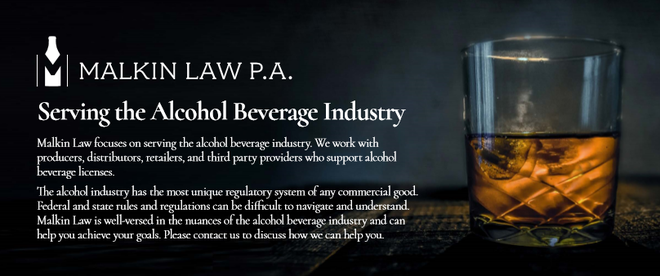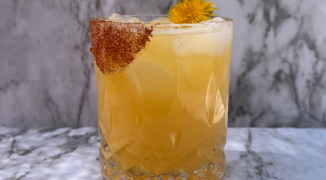For many aspiring spirits producers, the task of getting a brand started seems daunting. Not only do many feel unsure of the correct first step to take when starting a business, the complex laws associated with the spirits industry scare many people away from even trying for fear of overstepping legal boundaries.
Ryan Malkin aims to help lessen those obstacles for the up-and-coming creators of the spirits industry by outlining the necessary steps and legal processes needed to launch a new brand. An attorney in the alcohol beverage industry, Malkin worked as an in-house counsellor for Pernod-Ricard for years before splitting off to begin an independent legal practice with other industry members. With clients ranging from large spirits manufacturers and suppliers to small startup brands, Malkin possesses extensive knowledge about the business and legal aspects of starting a brand. He offers this knowledge here to help ensure the success of budding brands.

Ryan Malkin works as an attorney in the spirits industry, providing consultation to new and existing brands.
A small disclaimer: While all of the advice provided here is legitimate, it should not be considered specific legal advice. Instead, it is intended for educational purposes. If you have further questions, Malkin can be reached at [email protected]. In addition, his website, www.malkinlawfirm.com, provides additional legal resources.
Before You Begin
Before even thinking about starting your company, there are several important things you need to consider. Malkin suggests giving careful consideration to the following: “Do you want a vodka, a gin, a whiskey? Is it important to your brand’s story that you have your own distillery, and have visitors to that distillery? Is it important that you have people walk through the facility? This is all going to play into how much money you’re going to need to start with. You also want to think about your price-positioning, and where you want your product on the shelf, and who your competitors are — as well as your route to market, in terms of which distributor you think you’re going to go with, how do you plan to make this product a success, and who your sales team is going to be at the end of the day.”
After these things have been thought over, the next — and, arguably, most important — step is to secure your personal assets by starting your company. “You’ll want to work with an attorney, or an accountant, or both, to set up a company,” Malkin explains. “That can be an LLC, or an S-corp — whatever vehicle you want to use and think is best for you is great, just make sure you have your personal assets protected.”
Assess Your Distiller Options
There are two main options for distilling your product: starting your own distillery or contract bottling. Each option comes with its own benefits and drawbacks. Ultimately, it is up to the company owner to decide which option best fits their product.
The “traditional route” is to start your own distillery. After finding a space to build the distillery, and procuring the necessary equipment, the next step would be to file for a federal license with the Alcohol and Tobacco Tax and Trade Bureau. After you acquire this, you can file for your state license. It is important to note that state law regulates much of what you can and can’t do at your distillery. “Obviously where you live is an important factor in where you want to market your product and sell your product,” says Malkin. “For instance, in New York you can, at your craft distillery, open up a bar or restaurant adjacent to or on the same sit. That might be a great additional money-maker for you.”
“At the end of the day, what you’re trying to do is engage the consumers and retailers in order to get them behind your brands, and the way that you do that is by following the different state rules.”
— Ryan Malkin
The other option for distillation is “contract bottling,” or “contract production.” Malkin defines this as, “Working with somebody who already has a DSB, or distillery license. You could potentially work with the distillery to produce your own formula, and outline any agreement that you own the formula, so you can take it somewhere else if things go south with them.” Contract bottling comes with multiple perks for startup brands: it requires fewer up-front costs because the need to build a distillery is gone, it allows you to focus on your area of competency and ensure that your product is being bottled by experts, and it allows you to hit the market faster. For the traditional route, “If you’re going to apply for a TTB and state permit on your own, you’re looking at almost a year. Let’s say six months or five months for your DSP, couple of months after that for your state permits, then you’ll also have TTB in terms of that waiting time — so you’re looking at probably close to a year before you’ll actually have a product on the shelf,” Malkin says. In contrast, “If you go with the contract bottling option, then you can hit the ground running — they can produce your product, get your labels out and approved, and you’re off in just a few months, potentially.”
Trademark Your Brand
This may seem like an obvious step, but it’s one that definitely deserves to be emphasized. “You want to make sure that it’s protected so nobody else can use the name,” Malkin stresses. “So you would work with an attorney to trademark the name, make sure it’s clear so you’re not producing something someone else already has in the market. It’s a relatively straightforward process of searching and making sure that the name is not out there, and then going from there. Trademark lawsuits can be extremely expensive, so you want to make sure that you’re not using someone else’s name.”
Design Your Label
Deciding what goes on your spirit’s label extends beyond choosing an attractive company logo. “I’m sure everyone’s seen, the past few years, there’s been a number of lawsuits regarding claims like ‘handcrafted’ or ‘handmade.’ Most have ultimately been dismissed. A lot of people didn’t change their labels. But at the end of the day you want to make sure that your labels are not misleading,” Malkin cautions. When filing for your certificate of label approval, it is important to know the things you’re allowed to put on your label, as well as things you’re legally required to include. “Some of the things you have to have on your label,” Malkin states, “are obviously the brand name, the type of product it is — so, for instance, is it a whiskey, is it a flavored whiskey, is it a vodka, is it a distilled spirit with all natural flavors … and then, obviously, you have to have things like your government warning, the ABV, so on and so forth.” Once those are squared away, and you’ve double-checked that you’re following regulations, you can submit your label to be approved.”
Distribution Options
Much of how you distribute your product depends on how you chose to distill it. If you decided to build your own distillery, many states allow you to self-distribute, which gives you full control over sales and marketing. Of course, you aren’t required to self-distribute. Many brands use a third-party wholesaler, a strategy known as the “three-tier system” in alcohol beverage rules. Simply put, Malkin states, “The supplier sells to the wholesaler like Southern or Breakthrough, and the wholesaler sells to the retailers.” There’s also a third, “hybrid” option, which involves using a third-party to “self-distribute;” essentially, you’re operating under the third-party company’s license, but you’re personally doing the footwork involved in distribution. Much like choosing how to distill your product, choosing a distribution method ultimately comes down to personal assessment.
Spread the Word
Even if you’re using a third-party distributor, the responsibility of growing your brand and getting publicity falls to you. Here’s where things get tricky: this is an area filled with potential legal mishaps if you don’t act carefully. The biggest thing you’ll want to avoid is a “tied-house” violation. Malkin defines this as, “Giving any gifts or services — again, things of value — to a retailer in exchange for something else. So, if a retailer tells you, ‘Hey, come in and swipe your credit card for $1,000, and I’ll put you on the cocktail menu,’ well, that’s something you know you can’t do.” While there are certain exceptions to this, these exceptions fall largely under state jurisdiction. So, it’s best to be aware of the rules in the state in which you’re operating (and, yes, if you’re operating in multiple states, you need to check the rules for each individual state) before you take any marketing action. “At the end of the day,” Malkin says, “what you’re trying to do is engage the consumers and retailers in order to get them behind your brands, and the way that you do that is by following the different state rules.”
Regarding marketing tactics that are almost always permissible, Malkin cites product displays: “Bar mats, napkin caddies, sometimes shakers; there’s a whole host of things that you can give to bars, restaurants and sometimes consumers in different states to help grow your brand.” In addition, you can give retailer and consumer specialties — things such as hats and t-shirts. In terms of getting your name out there, Malkin advises, one of the best things you can do for your brand is attend Tales of the Cocktail®, which puts you in an environment where you can engage with both consumers and retailers alike. While you likely won’t have a brand on the shelf by this July, Tales is definitely an attractive future prospect to consider after your spirit has launched.
Malkin will be moderating a seminar this summer at Tales called “How to Make the Right Deal,” which will address how to correctly assess your brand’s value and make deals that will most benefit you.





